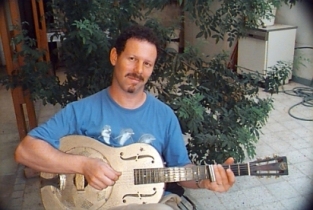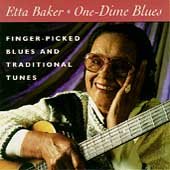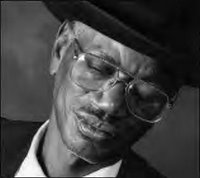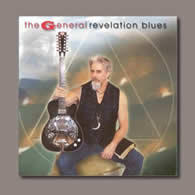
This is from Hawkeye Herman:
--------------------------
It is with a heavy heart that I report to you that 96 year old blues legend Henry Townsend passed away this evening at St. Mary's Ozaukee Hosptal,Mequon,WI at approximately 10PM (CDT) just hours after having been the first person presented with a 'key' in Grafton's Paramount Plaza Walk of Fame. The last surviving blues artist to have recorded for Paramount Records.
The Paramount Plaza Walk of Fame, currently under construction, will be a stylized piano keyboard. Forty-four keys will each have the name of a famous Paramount recording star.
It was in Grafton, Wisconsin that Henry Townsend recorded two songs for Paramount Records in 1930; "Doctor, Oh Doctor," and "Jack of Diamonds Georgia Rub."
Mr. Townsend made the trip to Grafton to be honored by the Village of Grafton as the first inductee on the Walk of Fame along with his son,Alonzo, his son's fiance, Kendra, and two members of his band.
Mr. Townsend arrived in Grafton on Thursday, Sept. 21st in good spirits, but confined to a wheelchair. He was to perform at the first annual Paramount Blues Festival as the honored guest. He was to be honored again on Sunday,Sept. 24th, at a noontime Paramount Plaza Walk of Fame ceremony.
Myself, members of the Grafton Blues Association, Alonzo, Kendra,and the band members all went out to dinner together on Thursday night. Henry was talkative, happy to be in Grafton, and excited about the weekend events that lay ahead.
However, the following day, Friday, 9/22, he was not feeling well and it was
necessary for him to be hospitalized. The hospital staff took immediate and great care of him. He wanted to get out of there and perform on Sat. a the festival. But it was not to be. He condition did not improve and the doctors refused to release him on Sat. so that he could perform. He was extremely disappointed. He told band member Jeff Shuman, "They didn't say I couldn't perform today." Shuman had to go and get the doctor and have him come back to Mr. Townsend's hospital room and explain to him that this meant that he could not leave the hospital to perform.
An announcement was made at the festival that he would not be present to perform. Alonzo Townsend spoke on behalf of his father, and apologized to the crowd for his father not being present, and that it was wonderful that Grafton had chosen to honor him, and that he hoped that he would be able to make it to the Walk of Fame ceremony on Sunday. It was not to be. Alonzo Townsend attended the noon ceremony on Sunday and accepted the honor for his father.
Henry Townsend is one of the few musicians who has recorded in every decade for the past 80 years. He was the last surviving Paramount blues artist. Born in Shelby, MS in 1909. As a youngster, he ran away from home to St.Louis where, as a teenager he heard Lonnie Johnson and other legends develop the blues sound. Henry was influenced by local barber Henry Spaulding's recording of "Cairo Blues," and his boyhood friend, David Perchfield. In 1929, an audition was arranged by Sam Woolf, owner of a music store in St.Louis. Townsend recorded for Columbia in 1929, and for Paramount in 1930.
It was piano great Roosevelt Sykes who brought Townsend to the attention of Paramount records.
Henry Townsend became the 'Godfather' of St. Louis blues. Performing on piano and guitar his entire life, and nurturing the younger generations in the world of the blues. His last release was "The 88 Blues."
Sadly submitted by Michael "Hawkeye" Herman - 9/24/06 in Grafton, WI
------------
p.s.
Since I am on the road and unable to take the time to submit this message to other interested parties and web sites ... you all have my permission to post this message and photo wherever blues fans might congregate online and in the media.



